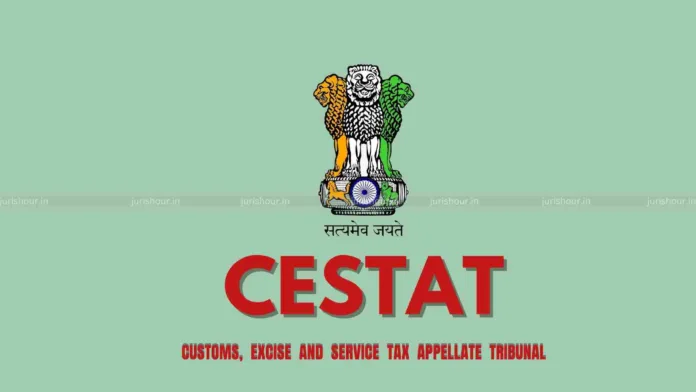The Chennai Bench of Customs Excise and Service Tax Appellate Tribunal (CESTAT) has held that a penalty can be imposed both on the company and its employees for the same alleged act of misdeclaration.
The bench of P. Dinesha (Judicial Member) and M. Ajit Kumar (Technical Member) has observed that an individual who has perpetrated the commission of an offence on behalf of a company can be made an accused, along with the company, if there is sufficient evidence of his active role coupled with criminal intent.
The appellants/assessee is a Managing Director and Deputy General Manager of M/s. Neoteric Informatique Ltd. The appellant-company imported ‘External and Internal TV Tuners” from China which appeared to be mis-declared as ‘accessories of computer’, to evade payment of duty and were classified under Customs Tariff Heading (CTH) 8473 3099 @ nil rate of BCD by availing benefit of exemption Notification No. 24/2005 dated 1.3.2005.
Customs Department were of the opinion that the goods merited classification under CTH 8528 7100 which attracts duty @ 10% BCD. After issuance of Show Cause Notice (SCN), the Adjudicating Authority rejected the declared classification and reclassified the goods under Tariff Item 8528 7100 and among other things imposed a penalty of Rs.5,00,000/- each on the appellants herein under sec. 112(a) of the Customs Act, 1962. The appeal filed by the company stood abated as per this Tribunals Final Order No. 40086 to 40088/2025 dated 15.1.2025, since the Company had gone into liquidation and NCLT had accepted the Resolution Plan. The present appeals are against the imposition of penalty under sec. 112(a)of the Customs Act, 1962 against both the appellants.
The assessee contended that A penalty cannot be imposed both on the company and the appellant for the same alleged act of misdeclaration. There is no evidence establishing their (appellants), role in any alleged suppression or misdeclaration. Without prejudice, there is no misdeclaration, as the goods were rightly classified under CTH 8473. In any case, when classification is based on a bona fide belief, any claim for exemption benefits on bona fide grounds cannot justify the department’s invocation of the extended period of limitation. The matter is covered by the decision of the Mumbai Tribunal in the company’s own case in Neotric Informatique Ltd. Versus Commr. of Cus. (Import), Nhava Sheva.
The tribunal noted that the SCN does not make any concrete allegations that any of the appellants knew that the goods were classifiable under CTH 8528 7100 but they have deliberately classified the same under CTH 8473 3099 to seek an undue tax advantage. While we do not seek to examine or endorse either of the classification headings here, just because the importer had a different view about the classification of the goods does not mean that the classification was mis-declared by the importer company and its staff. Classification of the goods is not a guessing game where the importer must guess correctly and declare in the Bill of Entry the classification that the Proper Officer will arrive on later or else he will be visited with a huge penalty. Or that every time the importer files a Bill of Entry, he must raise a doubt and seek clarifications from the Customs department so that the mind of the Customs officer is revealed and the importer avoids penalties, totally incognizant of the transaction costs that any delay would entail!
The CESTAT held that The importer is not an expert on Customs classification of goods and even if he was one, there is no reason why he should not logically arrive at a classification heading for the imported goods which does not match that of Customs officials. No intention to mis-declare or mis-classify can be suspected in such circumstances, unless it is demonstrated that a negative mental element was present and the classification of the goods was done in a malafide manner with total disregard to the Rules of Interpretation of the Tariff, which a conscientious businessman would not have made. Such evidence is missing.
The tribunal quashed the order pertaining to the imposition of penalties on the appellant.
Case Details
Case Title: Paras H Shah Versus Commissioner of Customs
Case No.: Customs Appeal No. 40237 of 2015
Date: 12.08.2025
Counsel For Appellant: Madan G, Advocate
Counsel For Respondent: Anandalakshmi Ganeshram
Read More: Section 87A Rebate on Short-Term Capital Gains Under New Tax Regime Allowed: ITAT

